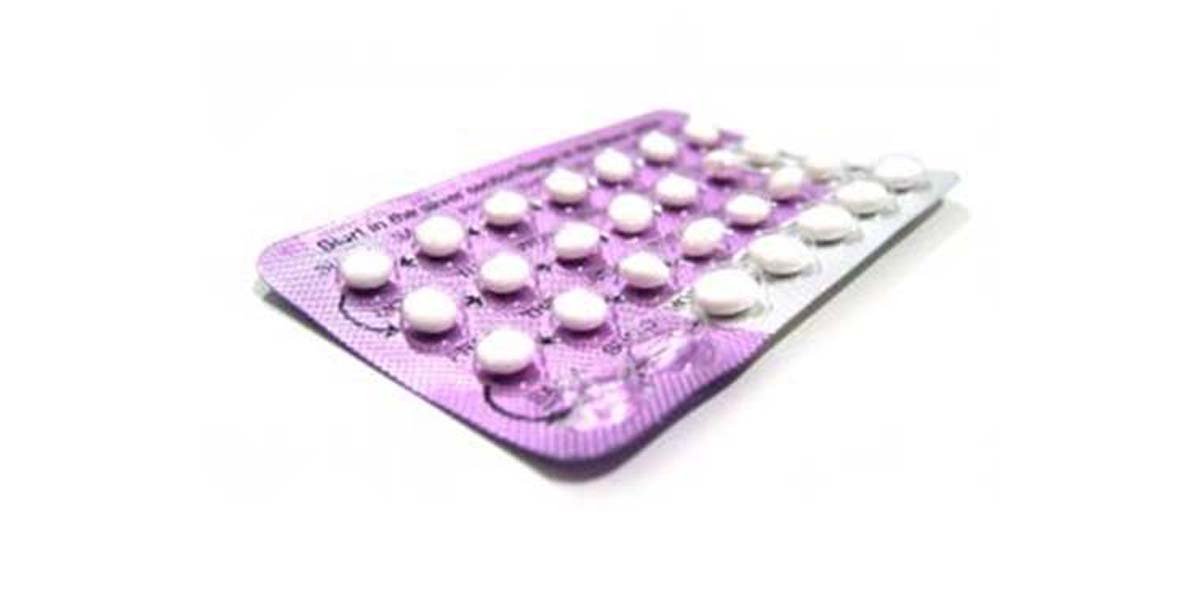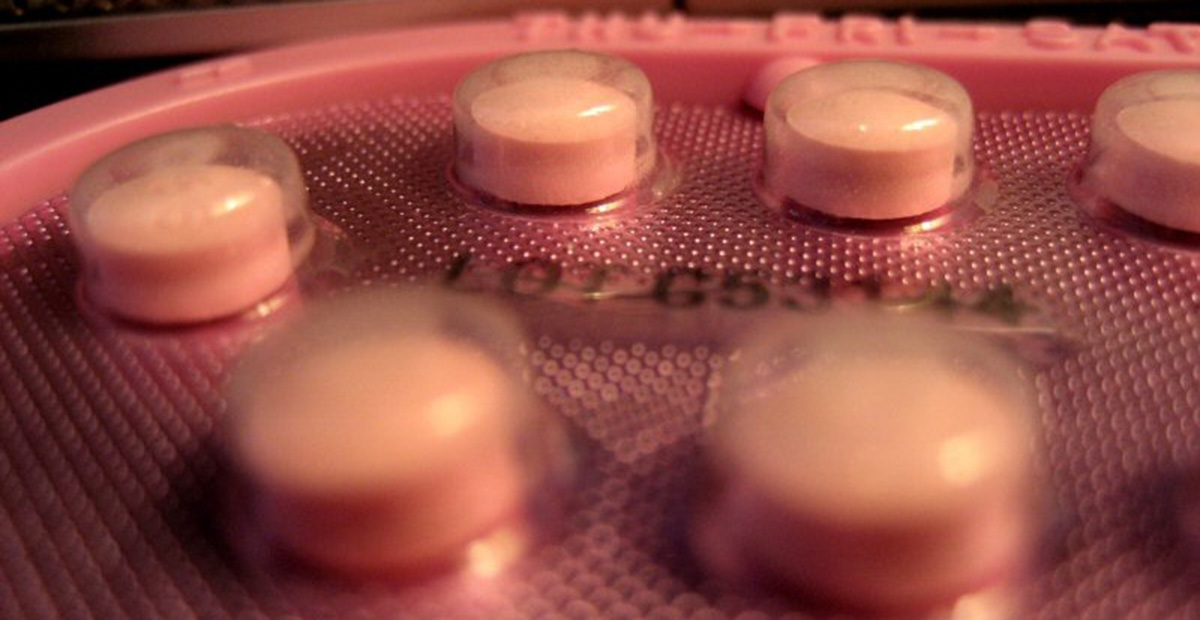Approximately one-third of women of childbearing age use the contraceptive Pill. It's a good, reliable method of contraception, and has been around since 1960, making it one of the first truly dependable, reversible forms of contraception available for women. It truly revolutionised the lives of women, making it possible for women to control their own sexuality, and allowing women to not be forced to have families their could not afford. It freed women from the ramifications of enjoying sex. Besides freeing women from the risk of pregnancy 99% of the time, it also has a number of other potential benefits for the women who take it.
Other Benefits of the Pill
- Reduced risk of Ovarian Cancer: Taking the Pill for five years or more reduces the risk of Ovarian cancer by 50%. This benefit continues even after stopping the Pill.
- Reducing dysmenorrhoea: By tricking your body into thinking you're pregnant, it reduces the painful cramps women with dysmenorrhoea suffer.

- Easing endometriosis: Endometriosis is a severe gynaecological condition that causes very severe, heavy and painful periods. By balancing the hormones and keeping the womb lining thin, the Pill can improve symptoms.
- Stabilising PMS: PMS can be very severe in some women. Taking the Pill can reduce the mood swings associated with PMS, and even ease symptoms of a severe variety of PMS called Premenstrual Dysphoric Disorder
- Less acne: Male hormones can cause acne. Taking the pill reduces the amount of male hormone in the body, clearing up the skin.
- Prevent hormone-related migraines: Migraines can be triggered by a drop in oestrogen. Taking the contraceptive pill prevents this sudden drop, helping to prevent these migraines.
So, What's the Bad News?
Many Pill-users take the contraceptive pill for years without complaint. However, there are some sad instances where it can cause problems. Here, we'll examine some of the most serious problems, the most common problems, and try to find out just what the deal is with the Pill and breast cancer.
Thrombosis
This is the most serious potential side-effect of the Pill, and it is potentially fatal. Thrombosis is a deadly blood clot that could lead to a Deep Vein Thrombosis, a heart attack, or a stroke.
Thrombosis most commonly occurs in women who:
- Are obese
- Are smokers
- Have high blood pressure
- Are over 35 years old
If you meet these risk factors (and especially if you are a smoker) ask about going on the Mini-Pill. While the Pill has oestrogen and progestogen, the Mini-Pill only has progestogen. This makes it less risky for those who are more likely to suffer Thrombosis. However, the Mini-Pill has a lower effectiveness rate to the Pill, so ask for advice.
READ Birth Control Pills Side Effects
Signs the Pill Isn't Right for You
If you start taking the Pill, watch out for signs that the Pill isn't right for you. These signs below are serious warning signs. If you experience them seek immediate medical attention, from either your doctor or your Accident and Emergency Department/Emergency Room:
- Abdominal Pain (stomach pain)
- Chest Pain
- Headache (severe)
- Eyes (vision problems; blurred vision)
- Swelling or aching in the legs or thighs
So remember, if you're on the Pill, see a doctor if it ACHES.
The Pill And Side Effects Continued
Common Side Effects
These side effects are commonly experienced by women taking the Pill:
- Weight gain (sorry ladies!)
- Nausea
- Sore or swollen breasts
- Lighter periods
- Spotting (small amounts of blood) between periods
- Mood changes
These side effects are usually minor and may go away over time.

Less Common (and Simply Ironic) Side-Effects of the Pill
In addition to these side effects, there is the potential for other side effects that are less common (and for some which are simply ironic). Not everyone will have all of these side effects, but they can be unpleasant:
- Acne: While, for some women, the pill helps to control acne, for others, the Pill gives them acne
- Hirsutism: The Pill causes thick hair to grow on some women's faces, backs and abdomens
- Migraines: For some women, oestrogen will exacerbate migraines
- Amenorrhea: Absent menstruation
- Lack of sex drive: The most ironic side effect of all; the Pill you take to ensure you can enjoy sex free from the risk of pregnancy kills the sex drive in one-quarter of all women who take it.
- Increase blood pressure: This increase makes thrombosis more likely, so have your blood pressure checked regularly while you're taking the Pill.
- Increased risk of tumours on the liver: Both benign and cancerous
- Increased risk of reoccurrence of gallstones: If you've had gallstones before, watch out for pain in your side, vomiting, yellowing of the skin and whites of your eyes (jaundice), and dark urine.
The Pill has its benefits and its side effects, but what of the worst claim levelled against the oral contraceptive Pill? What of the claim that taking the Pill is linked to an increased risk of breast cancer?
The Pill and Breast Cancer
The traditional claim has been that the Pill causes breast cancer. In 2010, refuting research by the Royal College of General Practitioners was released. Hannaford et al followed more than 46000 women in the United Kingdom for up to 39 years. Some of the women took the contraceptive Pill, some had never taken it. It was found that those who had never the Pill were not at higher risk of death by Breast Cancer compared to those who had never used the Pill. It's also worth noting that the Pill users' (or former Pill users') risk of death by Ovarian and Uterine Cancers was considerably lower.
Should I Take the Pill?
The Pill is not suitable for everyone. If you have had a previous Thrombosis, or suffer from a blood-clotting condition called Hughes Syndrome (or Anti-Phospholipid Syndrome, APLS), you should not take the Pill. Some migraine sufferers should also avoid the Pill, as it could raise the risk of having a stroke.
Viable alternatives to the Pill could include condoms, the Mini-Pill, the Mirena coil, and the Depo-Provera injection (depending on your health and other circumstances). Always seek advice.
However, if you are physically healthy, and especially if you want to control your periods, the Pill could still be a viable form of contraception, allowing you to take charge of your sex-life.
READ Study Suggests Acupuncture Is Not an Effective Way to Ease the Pain of Childbirth
What Pill Should I Ask For
When you go see your doctor, or prescribing nurse, ask for a low-dose hormone from the second-generation of contraceptives. Some of the third-generation (such as Yasmin) have recently been linked to a higher risk of Thrombosis. If you experience any of the side-effects discussed, or are feeling ill in a way you didn't expect, see your doctor.
Remember: It's your body. And you must feel happy with the choices you make for your own body.
- http://www.bmj.com/content/340/bmj.c927 http://www.theguardian.com/books/2015/feb/09/birth-of-the-pill-jonathan-eig--review-one-giant-leap-for-womankind http://www.healthline.com/health/birth-control-effects-on-body https://healthunlocked.com/hughes-syndrome/posts/131265953/contraception-aps-and-lupus http://www.hughes-syndrome.org/resources/factsheets/HSF-APS-SH-Womans-Health.pdf www.irishexaminer.com/lifestyle/healthandlife/relationships/cruel-irony-of-taking-the-contraceptive-pill-323077 http://www.netdoctor.co.uk/conditions/sexual-health/a2256/the-contraceptive-pill http://www.webmd.com/sex/birth-control/birth-control-pills http://www.webmd.com/sex/birth-control/features/other-reasons-to-take-the-pill
- Photo courtesy of gnarlsmonkey: www.flickr.com/photos/gnarlsmonkey/263019967/
- Photo courtesy of Nate Grigg by Flickr: www.flickr.com/photos/nateone/2713580189/
- Photo courtesy of nateone: www.flickr.com/photos/nateone/2713580189/


Your thoughts on this